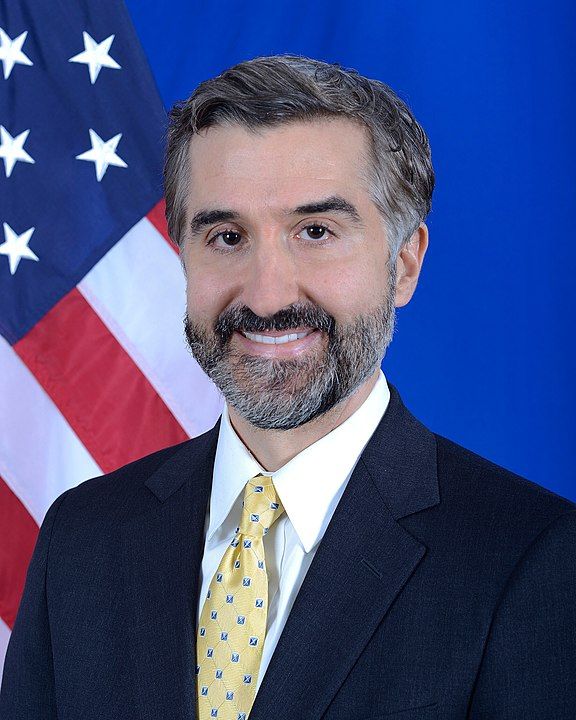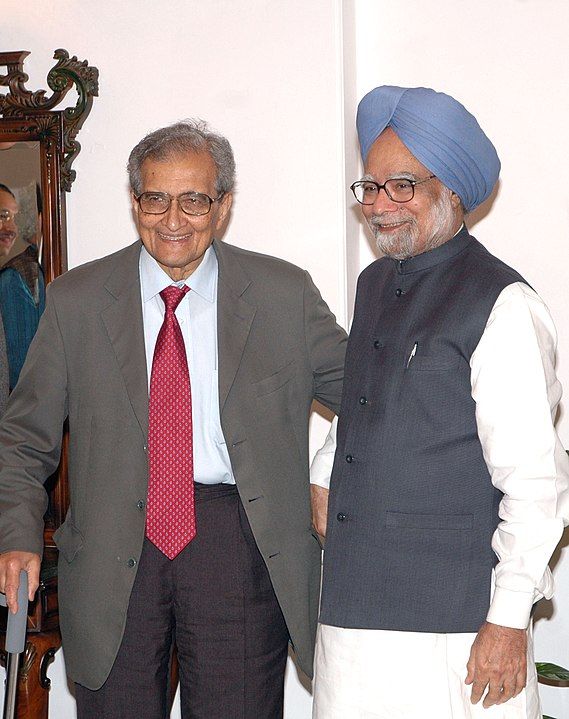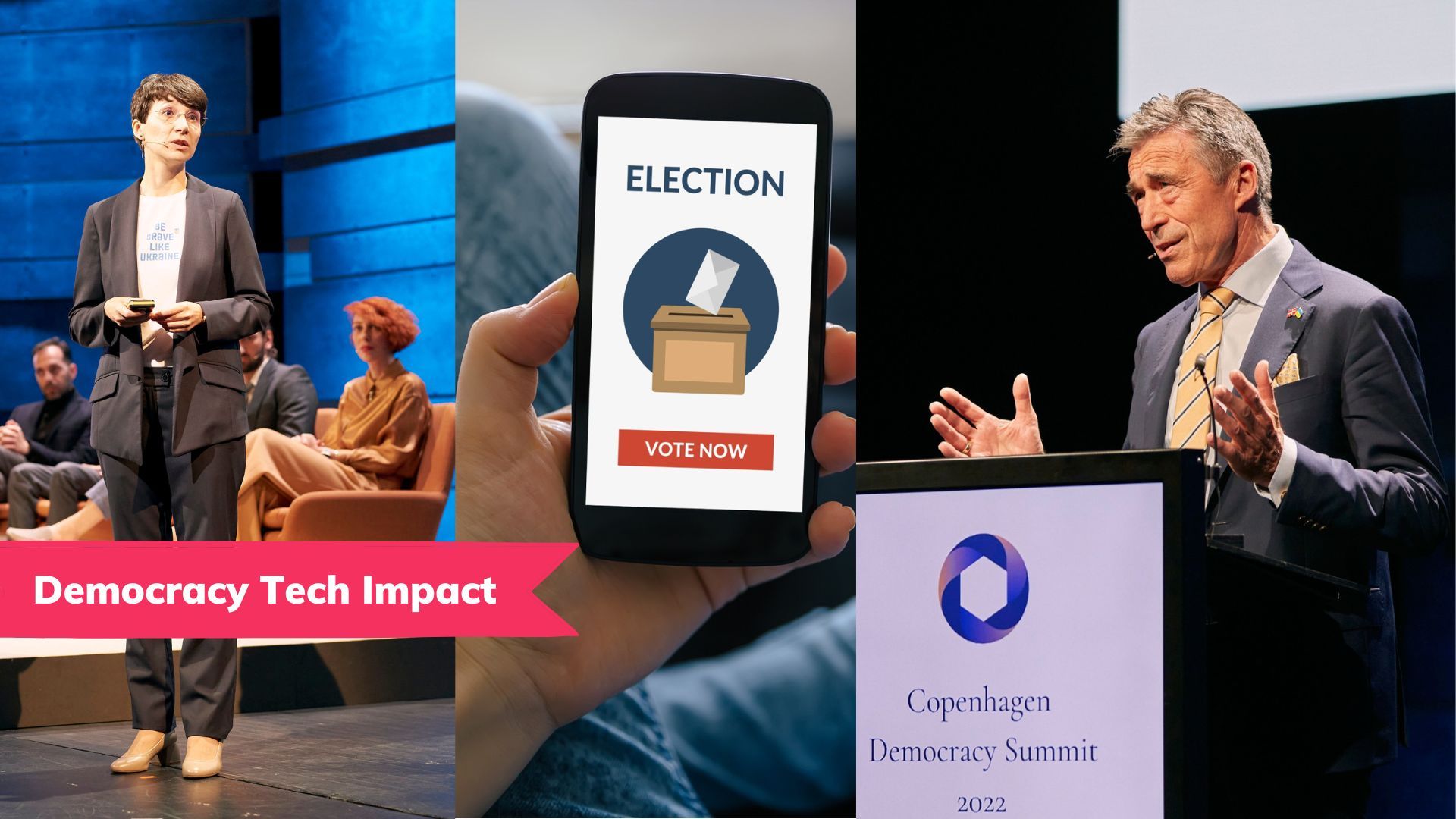
💡 Optimist's Edge: Famine is not due to a lack of food
Millions of people living in the Horn of Africa are threatened by starvation. The root cause is not drought, conflict or war, but something else.
Share this story!
📉 What people think
When famine or the risk of famine is reported anywhere in the world, the weather or nature is singled out as the cause, such as droughts or floods.
BBC: “Somalia drought: The fight for survival as famine looms”
Africa News: “The perils of starvation and flooding in South Sudan”
Sometimes it is claimed that it is because of a war or an armed conflict.
Guardian: “Ukraine war has stoked global food crisis that could last years, says UN”
LA Times: “Famine threatens wide swaths of world, now worsened by Ukraine war”

Other factors are also sometimes highlighted.
“The current food security challenge that we’re facing is due to these three Cs: climate, COVID, and conflict,” säger Ramin Toloui, Assistant Secretary of State for the United States.
📈 Here are the facts
Droughts, floods, wars and conflicts are causes that can lead to famines, but they are not the main cause.
A drought can wipe out people's local food production. An armed conflict can prevent aid workers from transporting food to those who need it. A war, like the one in Ukraine, can increase food prices. A pandemic can disrupt supply chains.
But if Sweden or the U.S. suffered a severe drought next summer, would people starve? No.
The Nobel laureate in economics, Amartya Sen, who himself experienced famine up close in India, has stated:
''No famine has ever taken place in the history of the world in a functioning democracy.”

In the book Development as Freedom, he explains why:
“Quite often economic insecurity can relate to the lack of democratic rights and liberties. Indeed, the working of democracy and of political rights can even help to prevent famines and other economic disasters.
Authoritarian rulers, who are themselves rarely affected by famines (or other such economic calamities), tend to lack the incentive to take timely preventive measures.
Democratic governments, in contrast, have to win elections and face public criticism, and have strong incentives to undertake measures to avert famines.”
At the time of this writing, several million people living in the Horn of Africa are threatened with starvation. The Horn of Africa consists of Djibouti, Eritrea, Ethiopia, and Somalia. A conflict-filled area, where none of the countries are a democracy. And now they have been hit by a severe drought.
If there were democracy and peace in the Horn of Africa, this drought would not lead to famine. Food from other places would arrive.
Famine is not caused by a lack of food, but by the fact that the available food does not reach those who need it.
💡 Optimist's Edge
💡 The world can be free from famines if everyone lives in a democracy.
👇 How to get the Optimist's Edge
How do we get there? Non-violent revolutions are the most effective.
- Many think that changing from authoritarian one-party or one-man rule to elected officials needs to be done by violence. Killing the dictator or throwing him in jail, means overpowering the military and secret police. Right?
- Not necessarily. Dr. Gene Sharp dedicated his life to studying revolutions. Using violence against a dictatorship's police and military is going against its strongest point.
- Instead, a resistance movement should challenge the dictatorship where it's weaker. Like Mahatma Gandhi and Martin Luther King did.
- Professor Erica Chenoweth and Dr. Maria Stephan compared 323 non-violent and violent resistance campaigns between 1900 and 2006. Non-violent campaigns were twice as likely to be successful than violent campaigns.
- Gene Sharp is the father of the color revolutions and gathered 198 methods (pdf) for non-violent movements. He also wrote several books on the topic. The most influential is From Dictatorship to Democracy: "Not, perhaps, since Machiavelli has a book had such impact in shifting the balance of power between the rulers and the ruled."
- With smartphones and the internet, democracy activists have many new tools. The Alliance of Democracies Foundation every year supports a group of Tech Fellows. Check them out and support them by using their tools and services:
- CANVAS grew out of the Serbian resistance movement that toppled Slobodan Milosevic and has trained over 16,000 democracy activists around the world. You can support their work, apply to become an intern, join the Summer Academy or take one of their university courses.
- Donate money to the AE Institution, founded by Dr. Gene Sharp. AEI trains activists in nonviolent resistance and revolutions.
- Vote for politicians and political parties that fully support and work for democracy at home and abroad.
- Run for political office on a democracy platform.

You now have an advantage because you have gained this knowledge before most others –
